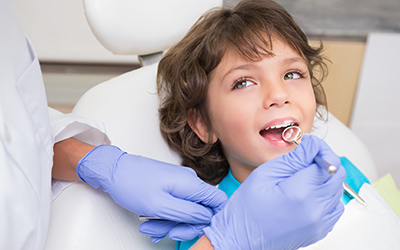Image Credit:
File ID 43632713 | © Wavebreakmedia Ltd | Dreamstime.com

When it comes to oral health, one common misconception persists: the belief that cavities can heal on their own. In this blog, we'll dive into the biological nature of tooth decay and the necessary interventions required to manage it effectively.
Tooth decay begins when the enamel, the hard, protective outer layer of the teeth, is compromised. Unlike skin or bone tissue, enamel does not contain living cells and, therefore, lacks the ability to regenerate.
This means that once a cavity has formed, the body cannot heal it naturally. The decay process starts with bacteria in the mouth that produce acids from sugar intake. These acids attack the enamel, leading to demineralization and eventually forming a cavity.
Pediatric dentists specialize in treating young patients, focusing on preventive measures and treatments tailored to children’s unique dental needs.
Their expertise in dentist pediatric dentistry is crucial for early detection and management of cavities, which is especially important given that untreated dental issues can lead to significant problems later in life.
Over 42% of children aged 2 to 11 have experienced dental caries in their primary teeth, according to the National Institute of Dental and Craniofacial Research. This prevalent issue highlights the necessity of regular dental check-ups.
In conclusion, cavities cannot heal themselves. For effective management of tooth decay, especially in children, consulting with professionals like those at Piedmont Pediatric Dentistry is vital.
These specialists provide comprehensive care that goes beyond temporary toothache relief in Greensboro, ensuring your child’s dental health is actively managed and maintained.